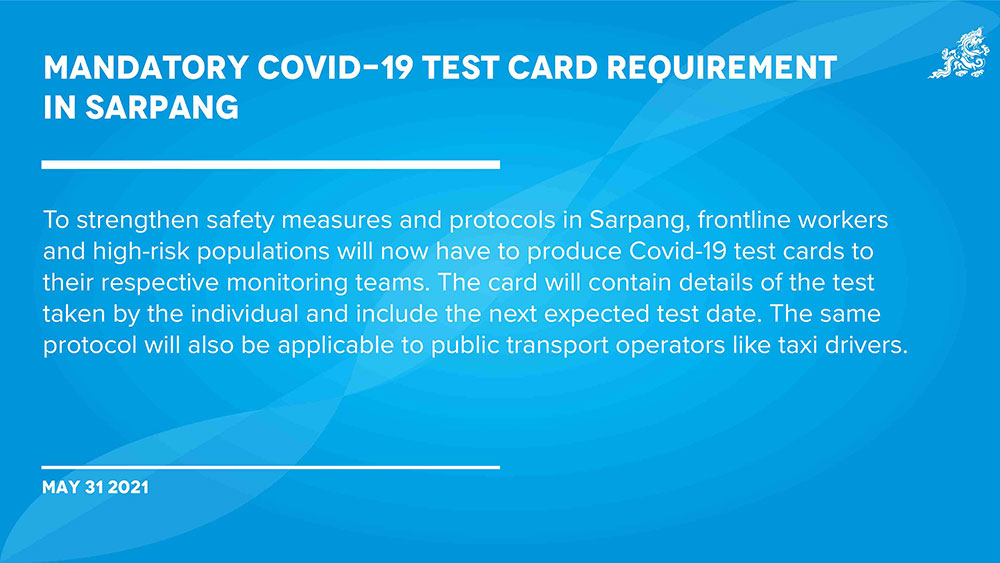Sarpang dzongkhag’s Covid-19 task force strengthened its safety measures and protocols in place by mandating frontline workers and high-risk population to produce Covid-19 test cards to the monitoring team.
The taskforce would be implementing the new requirement this week. The test cards would be ready by Tuesday.
High-risk population includes people residing in villages close to the border, business communities, and public transport operators.
The Covid-19 test card would have the details of the type of test, date, and the next expected date of the concerned individual.
This comes after a monitoring team, comprising of in-service desuups, observed non-compliance of safety protocols in the town and among the high-risk populations despite the situation in other high-risk areas and in the neighbouring border towns.
Medical superintendent with Central Regional Referral Hospital (CRRH), Dr Dorji Tshering, said that it was challenging to know when and what type of test was done during the enhanced surveillance and testing of high-risk populations and frontline workers.
“Retrieving the record of the test was a challenge. We have come across some frontline workers not coming forward for the test,” he said. “Keeping this shortcoming in mind, the task force has decided to make it mandatory for the frontline workers and high-risk populations to carry the test card.”
Officials from the Royal Safety and Transport Authority (RSTA) would implement the same protocol for the public transport operators.
Taxi drivers will have to produce the Covid-19 test card. They would not be allowed to ferry people without producing the test card.
Officials said any monitoring team could ask for the test card, which would act as a fitness test.
Dr Dorji Tshering said few frontline workers avoid the test for various reasons. “This could lead to unfortunate incidents, like a silent outbreak.”
He said the test card is expected to resolve such issues.
He also said some frontline workers and high-risk populations hesitate to undergo the test because of discomfort. “Some feel they don’t need the test, as they have not gone anywhere.”
Sarpang is the only high-risk area without any reported local transmission today. However, the risk of a local outbreak is imminent, as the dzongkhag shares a long porous border.
The dzongkhag task force implemented the several safety protocols as per the directives from the national task force and also after considering the latest evidence from dzongkhags that reported cases from quarantine facilities catering to foreign workers.
The task force has started to place drivers carrying essentials from high-risk areas in the containment facility, unlike in the past where they were allowed to move freely in the dzongkhag while they wait to return to their destinations.
The dzongkhag placed over 45 drivers coming to Gelephu from Phuentsholing and Samdrupjongkhar since May 17, after those dzongkhags started to report cases from the community.
Dr Dorji Tshering said that the support from the public and community in ensuring all Covid-19 protocols are followed strictly has become crucial. “Whatever we achieved so far was from collective efforts. It should be further strengthened.”
By Nima | Gelephu
Edited by Tashi Dema


